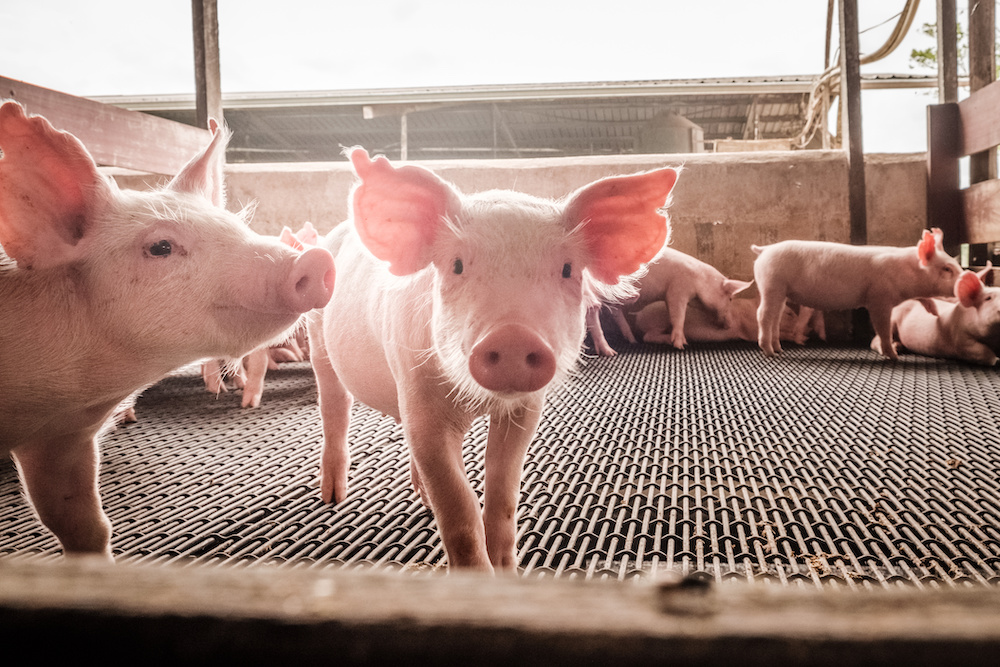“Give a f***, actually”: The surprising benefits of being grateful for things you dislike

- In Give a F*ck, Actually: Reclaim Yourself with the 5 Steps of Radical Emotional Acceptance, psychiatrist Alex Wills counters the popular wisdom that you should learn “how not to give a f***.”
- Wills instead advocates for Radical Emotional Acceptance, which he describes as a “field guide for validating your emotions and desire” and learning to choose to love yourself unconditionally.
- Wills argues that we all have the need to experience unconditional love, but too few of us do.
As a young boy in the West, I sometimes felt like a “show child”—a high-achieving, but docile credit to my family name. There is a seed of truth in the American myth of the taciturn, emotionally uncommunicative cowboy. Throughout my childhood, I received the subtle and sometimes unsubtle message that certain emotions—sadness and anger in particular—were off limits. I used to think it was bad to raise my voice or to bite back like a German Shepard when its tail is yanked. I remember being scolded for looking like I was feeling sad—“buck up” and “stop moping around!”
It truly takes a village to emotionally suppress a child.
Now I celebrate all of life’s rich emotions—even the most complicated ones, like jealousy or fear of success. Most people say they fear failure, but if you take a hardboiled look at human behavior, you might observe far more people shirking success. The currency of my childhood in a close-knit community was fitting in; not standing out. I feared “shining” in such a way that I lost friends. I feared being a tall poppy in a field of brilliant red.
All of my emotions are pointing me toward deep truths about myself and my relationships—toward a better way of living. And “all” is the operative word: everybody and their dog teaches you to practice gratitude for the things you like. It’s easy to be thankful for good health or a loving relationship.
But do you know what’s truly transformational? Finding gratitude for all the things you don’t like. Practicing gratitude for difficult emotions, people, and situations is a lot harder than ecstatic journaling over that pot-o’-gold inheritance from your Great Aunt Marge. It’s harder, but it’s ultimately more rewarding. Finding value in emotions our brains label as “negative” orients us toward peace.
Here’s the secret: If you’re thankful for everything that happens to you, even in the midst of sorrow, you can always find your way back to a place of serenity. Finding gratitude for our problems, “negative” emotions, and our pain puts us back in our leather recliner at our own personal cinema. We get to settle in with our popcorn and enjoy our movie. We notice when we’re trying to fast forward, or emotionally bypass, the hard stuff. We stay for the full ride; the tragedies and the triumphs.
We all start out with the assumption that pain is bad. But have you ever been around someone who was born without pain receptors? The rare condition is called congenital insensitivity to pain (CIPA); it affects about one in a million people. From birth, people who suffer from CIPA never feel pain in any part of their body when injured. Sound like a bottle of laudanum and feather bed in heaven?
Think again. The inability to feel pain is a massive extra dollop of life suffering. CIPA is unimaginably dangerous; in most cases, people with this tragic condition don’t live beyond the age of 25. CIPA sufferers must constantly check for burns, bruises, cuts, and other unfelt injuries. If they live to see 25, they are usually disfigured by broken bones, burns, and other scarring. Imagine if the first time you touched a hot stove you didn’t instantly draw back your hand? Now imagine that scenario happening over and over, perhaps for a couple decades. It’s not pretty.
It is in this spirit I write, pain is good. It is a formidable taskmaster, for sure, but feeling pain, as long as we learn from it, is in our best interest. I spend hours playing with my two-year-old daughter, and she’s constantly playing and hurting herself. Some days the sharp wood corners of our coffee table are her sagest teacher. Sometimes she will cry, but more often than not, she will laugh at the silliness of her tumbles. In the theater of life, children naturally love learning from cause and effect; what an academic might call “experiential learning” and what a parent calls “repercussions.” This is how my baby girl is coming to navigate the world and trust herself.
Through practicing Radical Emotional Acceptance (REA), we’re often able to get more out of life than we ever thought possible.
We all have the need to experience unconditional love. I call it a need, because if it’s not met, we experience mental, emotional, and bodily symptoms, and name-your-drug-of-choice addictions. Every mental health problem I have ever encountered stems, on some level, from not being loved unconditionally: by our parents, our friends, and, most importantly, ourselves.
Radical Emotional Acceptance is self-love. REA is the how of loving yourself: a field guide for validating your emotions and desires. And here’s another big secret: giving yourself the experience of being loved unconditionally is a choice. We get to choose to only receive unconditional love in our relationships, and we get to choose to love ourselves unconditionally.
When we are aware of this noble truth, our eyes are open to reality. In this universe, there is an abundance of unconditional love for all of us. We just have to reach for it, dare I say—accept it.





